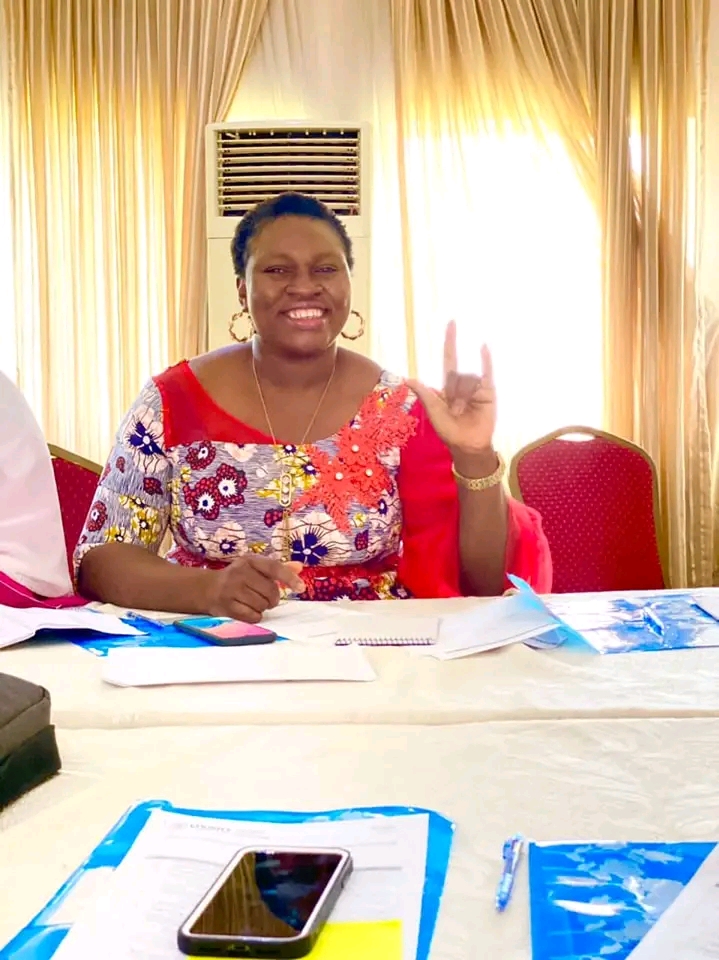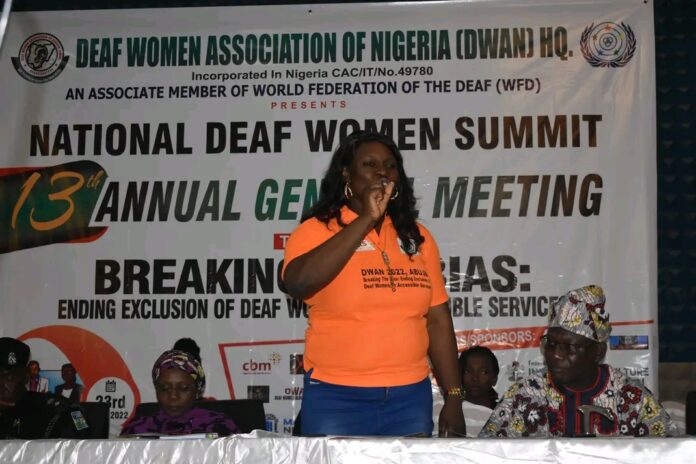By Deborah Ocheni
The international and regional human rights systems remain one of the greatest achievements in the internationalisation of human rights and today the systems are important venues for the protection and promotion of human rights and in particular people with disabilities.
Globally, there have been spirited efforts by people with disabilities to establish their legal rights as bona fide members of the society. In advocating for their rights, people with disabilities have strived to establish that they be considered on the basis of individual merit, not on some stereotyped assumption about disability.
They also advocated that society must make certain changes to enable them to participate more meaningfully in secular activities.
According to the World Health Organisation’s World Disability Report, about 15 per cent of Nigeria’s population or at least 25 million people have a form of disability. Many of them face a number of human rights abuses including stigma, discrimination, violence, and lack of access to healthcare, housing, and education.

Disability Act
In 2019, President Muhammadu Buhari signed into law, the Discrimination against Persons with Disabilities (Prohibition) Act. The bill which has lingered in the National Assembly for 18 years before its approval seeks to criminalise discrimination against persons with disabilities. The law prohibits discrimination on the basis of disability and imposes sanctions including fines and prison sentences on those who contravene it. It also stipulates a five-year transitional period for modifying public buildings, structures, and automobiles to make them accessible and usable for people with disabilities.
Recently in Abuja, the Deaf Women Association of Nigeria (DWAN), in a press brief commemorating the 13th Annual General Meeting and national women summit of Deaf Women Association of Nigeria called for a review of the Disability Act to give recognition to women.
The National President, DWAN, Helen Beyioku-Alase said the society can no longer ignore the lot of the deaf woman as their disability is not an inability insisting what a man can do, a woman can do even better.
One year in Office
However, the successes recorded are a far cry relative to the population of our capable women and the less privileged Deaf Women in Nigeria. “A deaf woman will mother several generations of hearing citizens.
Therefore, it is a disservice to the nation to marginalise the deaf woman and ignore her silent cry over gender- based violence and discrimination committed against us by both the high and the low in Nigeria,” she said.
DWAN, founded by Deaconess Adedoyin Beyioku-Alase, started as a lone woman’s passion for the empowerment of deaf women in 2001 and since then, DWAN has become a household name in the Nigerian deaf community.
Challenges
Speaking on their challenges, the National President said: “Discrimination, gender-based violence and poor access remain big snares against us.
Till date, our members and deaf women in general face violence and subjugation from men, discrimination in employment, zero/poor access to health care, education, public women centred policies which can better the life of less privileged deaf women hidden everywhere in the nation. We are compassed about but we shall not be discouraged.”
On the future envisioned, Beyioku- Alase said: “We see a future where deaf women are liberated and empowered to live with dignity and excel in their chosen paths towards achieving equality for deaf women at all spheres of human endeavour.”
For this to become a reality, she sincerely craved the support of government and non-governmental organisations, including health care facilities, schools, religious leaders, business owners and the like, across the nation to create an inclusive community for deaf women through the provision of sign language interpret ers at all activities at public places.
Women-centred policies which can better the life of less-privileged deaf women hidden everywhere in the nation.
She noted that the focus of their meeting will be to “create awareness, exchange ideas, network, build capacity and establish synergy with relevant organisations to address the issues of marginalisation, violation and discrimination against deaf women and girls especially in the areas of sexual and reproductive health rights, gender based violence, employment and empowerment in order to break the bias against us in Nigeria.
Gradually, we shall eliminate all these vices against deaf women and girls in Nigeria. “The clarion call therefore to stakeholders, government, agencies, local and international organisations to take action to curb the menace of ‘exclusion’ and help deaf women get access to inclusive services and improved living standards.”
She noted that they have already set up a system to help deaf women achieve better inclusion and equity like their hearing counterparts.
“We have achieved better inclusion through collaboration with the national women development centre on ICT, leadership training for DWAN national executives, value clarification and attitude transformation workshop to equip our leaders with skills handling gender based violence. South-west leadership for both members and leadership and leaders of DWAN Ekiti State,” she explained.
Huge gap
She, however, acknowledged the huge gap that still exists in assessing sexual and reproductive health information and services by deaf women and girls.
“The situation is a cause for concern, we realised the importance of removing the barriers in communication between deaf women and health care providers in all 36 states of Nigeria including FCT.
“There is a need to build the advocacy skills of deaf women in Nigeria so they can collectively achieve the goal of inclusive health service. There is also the need to educate stakeholders’ especially health care providers on the subject of deaf inclusion. Deaf women also need an inclusive environment for political participation so that they can be part of the decision making process.”
She concluded by saying that these will be the focal points of her tenure as the National President.


